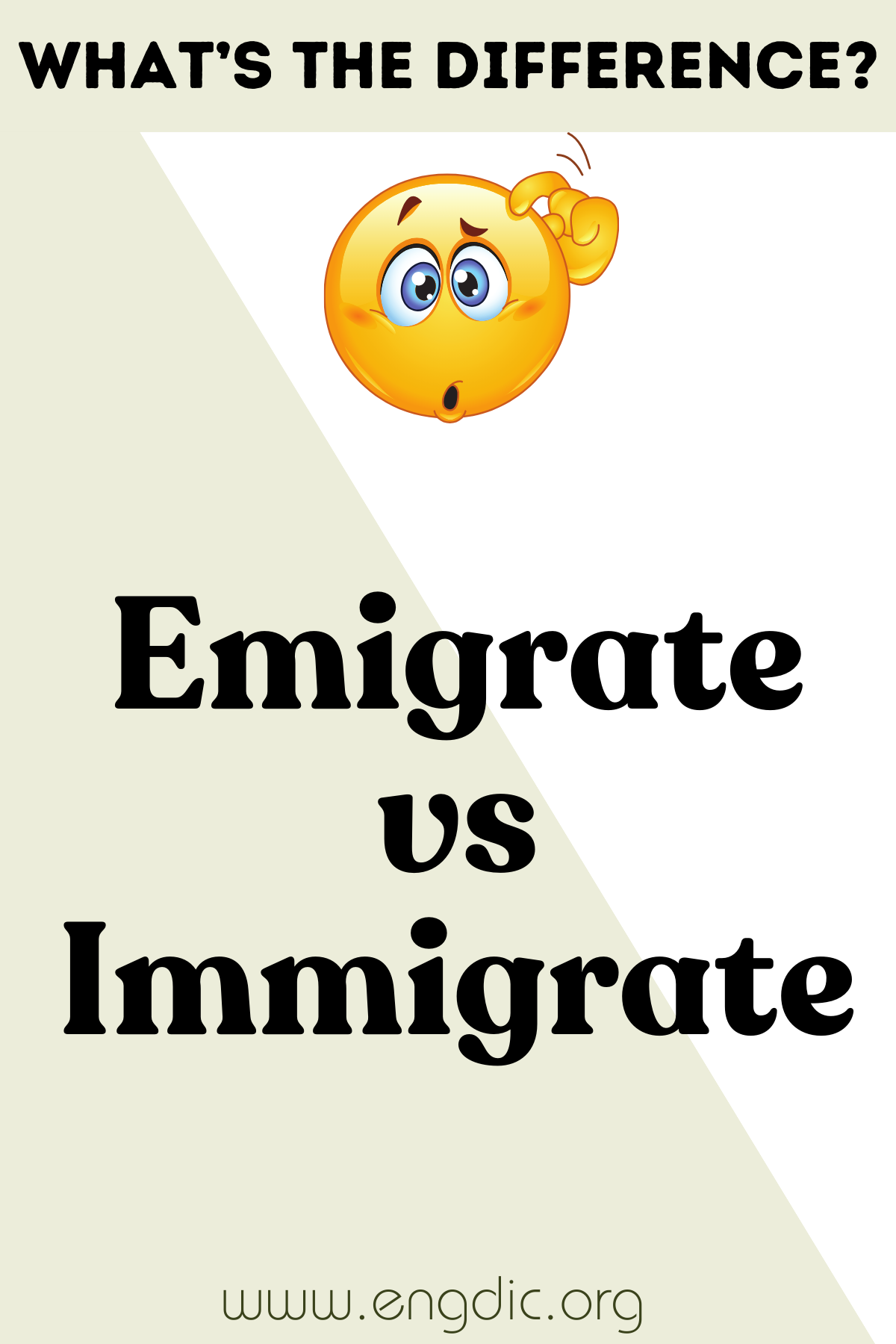Emigrate and immigrate both refer to moving from one country to another, but from different perspectives.
- Emigrate means leaving one’s own country to settle in another, focusing on the departure.
- Immigrate, conversely, is the act of coming to live in a foreign country, emphasizing arrival.
Think of it this way: you emigrate from your homeland to immigrate to your new country. These words often confuse people because of their similar meanings, but they have distinct connotations based on the perspective of the person moving.
Emigrate
- Definition: To leave one’s country of residence permanently.
- Usage: Emigrate is used when focusing on the departure aspect of moving to another country. It implies leaving one’s homeland with the intent of establishing a new residence elsewhere.
- Examples:
- “John decided to emigrate from Canada due to the harsh winters.”
- “During the 19th century, many Europeans emigrated to America in search of better opportunities.”
- “Political unrest led many citizens to emigrate from the country.”
Immigrate
- Definition: To come into another country to live permanently.
- Usage: Immigrate focuses on the arrival aspect of moving to a new country, emphasizing the new beginning in a foreign land.
- Examples:
- “She plans to immigrate to Australia for her job.”
- “Many families immigrated to the U.S. in the early 20th century, hoping for a fresh start.”
- “After receiving a job offer, he immigrated to Germany to pursue his career.”







